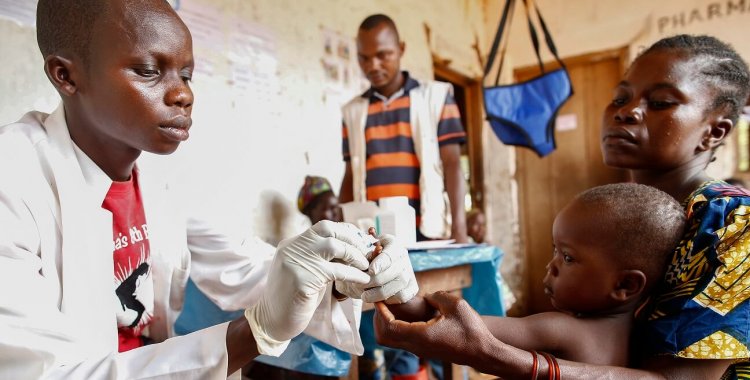Angola remains among the six countries most affected by malaria globally, “representing more than 3 percent of global cases,” said the Secretary of State for Public Health, Carlos Alberto Pinto de Sousa.
“In our country, malaria continues to be the main cause of morbidity and mortality. In 2024, we will register more than 11,964,261 cases and 11,447 deaths,” said the governor at the opening of the central event commemorating World Malaria Day, in Luanda.
According to the Secretary of State, in recent years the country has observed “growing threats” of diseases transmitted by vectors [vehicles of disease transmission, such as mosquitoes], which increases the risk of epidemics of diseases transmitted by these vectors (…) “translating into an increase in cases of malaria, dengue, chikungunya and zika”.
The official admitted in his speech that “underreporting (poor reporting of diseases) likely obscures the true extent of the problem and potentially hides other unidentified vector-borne diseases.”
He assured that the national Public Health department is strengthening the vector surveillance system that ensures the systematic and periodic collection, analysis and understanding of entomological data (insect studies) to assess the health risk of vector-borne diseases in all provinces.
He also announced that the Entomological Map is being updated, with the technical support of a Brazilian institution, with the aim of understanding the main vectors involved in the transmission of diseases and defining integrated vector control strategies.
Malaria “is preventable and treatable. We cannot allow it to continue to limit our development,” said Carlos Alberto Pinto de Sousa, adding that the challenge for authorities is to ensure that no Angolan is left behind, especially pregnant women and children, in accessing free diagnosis and treatment throughout the country.
He also reaffirmed the sector's commitment to reinvest in prevention, treatment and research, to reinvent strategies based on science and technology, and to rekindle the collective commitment to eliminate malaria with solidarity and coordinated action.
“Accelerating the fight against malaria is a patriotic duty, it is investing in equity and in the future of generations. Let us reinvest, reinvent and reignite together, until we eliminate malaria and guarantee health and prosperity for everyone in our country, Angola”, concluded the minister.
World Malaria Day celebrations took place under the motto: “Reinvest, Reinvent and Rekindle”.







